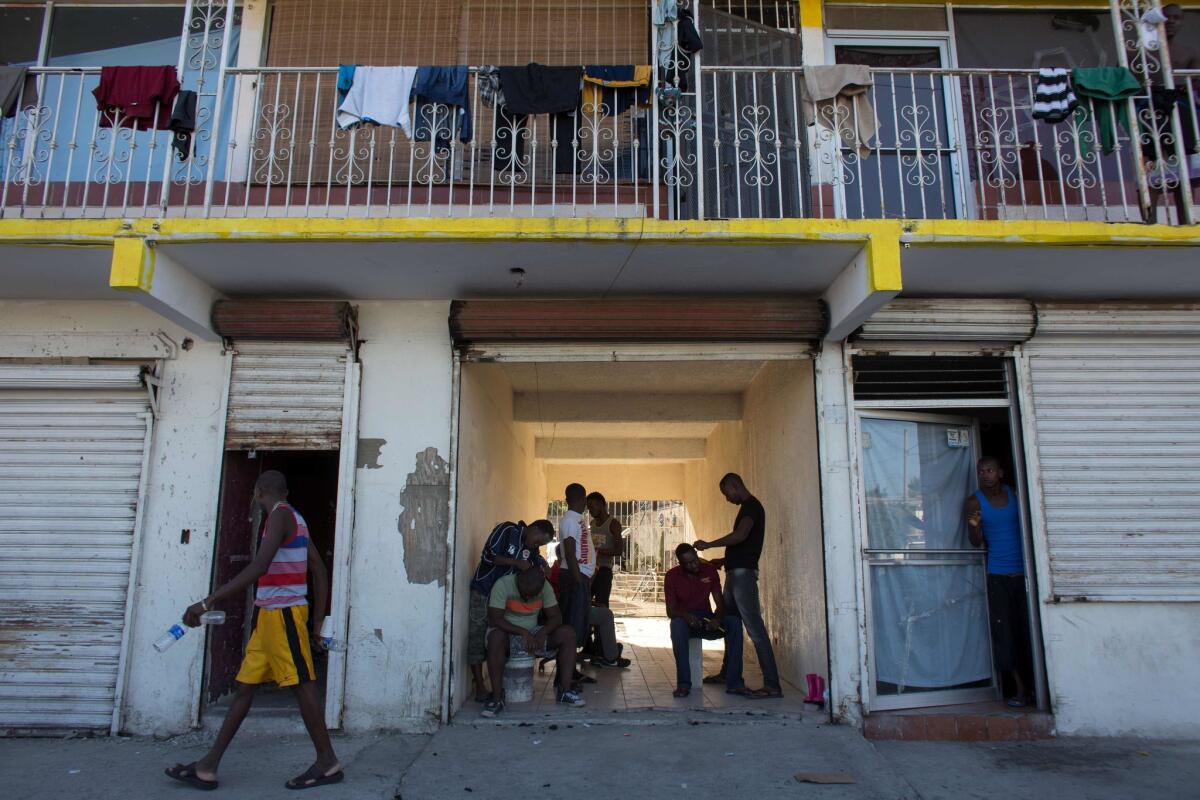U.S. starts releasing Haitians who entered through Mexico

- Share via
Reporting from San Diego — A surge in border crossings and a lack of immigration jail space have prompted the federal government to start releasing Haitian immigrants who have been entering the country in large numbers in recent months, backtracking on a pledge to jail them.
A U.S. government official said the decision to free Haitians arriving in Arizona and California is in response to a lack of jail space. The official said releasing immigrants with orders to report later to immigration court is a tactic used when detention space is scarce, under certain humanitarian conditions or as part of efforts to keep families together.
Before the Haitians are released, they are subjected to a criminal background and national security check. The official was not authorized to discuss the matter publicly and insisted on speaking on condition of anonymity.
Thousands of Haitians have arrived at the U.S. border with Mexico in recent months, many after traveling 7,000 miles by foot, taxi and bus from Brazil through eight nations. They present themselves to U.S. border inspectors, often at San Diego’s San Ysidro port of entry, the nation’s busiest crossing.
About 5,000 Haitians had showed up at San Ysidro from October 2015 through late September, overwhelming inspectors. Immigration and Customs Enforcement Director Sarah Saldana said at a recent congressional hearing that officials told her on a trip to Central America that 40,000 more were on their way.
The Department of Homeland Security last week said there were about 41,000 people in immigration detention facilities, compared to a typical population of 31,000 to 34,000. Secretary Jeh Johnson authorized the acquisition of more bed space for single adults.
The move reverses Johnson’s recently announced plans to detain Haitians during deportation proceedings. In late September, Homeland Security began putting Haitians in detention before sending them back to the homeland they fled.
It was unclear how many Haitians have been released since the change. The Department of Homeland Security did not immediately respond to a request for comment.
The large numbers of Haitians arriving in California and Arizona and Central Americans coming across in Texas have put a tremendous strain on the system.
The decision will probably add to the growing backlog of more than 500,000 cases already pending in immigration court. That backlog has effectively meant that immigrants routinely wait years for a judge to decide if they should be kicked out of the country.
ALSO
In Trump they trust: Why these Californians voted red
Congress may let California National Guard soldiers keep millions in bonuses
More to Read
Sign up for Essential California
The most important California stories and recommendations in your inbox every morning.
You may occasionally receive promotional content from the Los Angeles Times.









